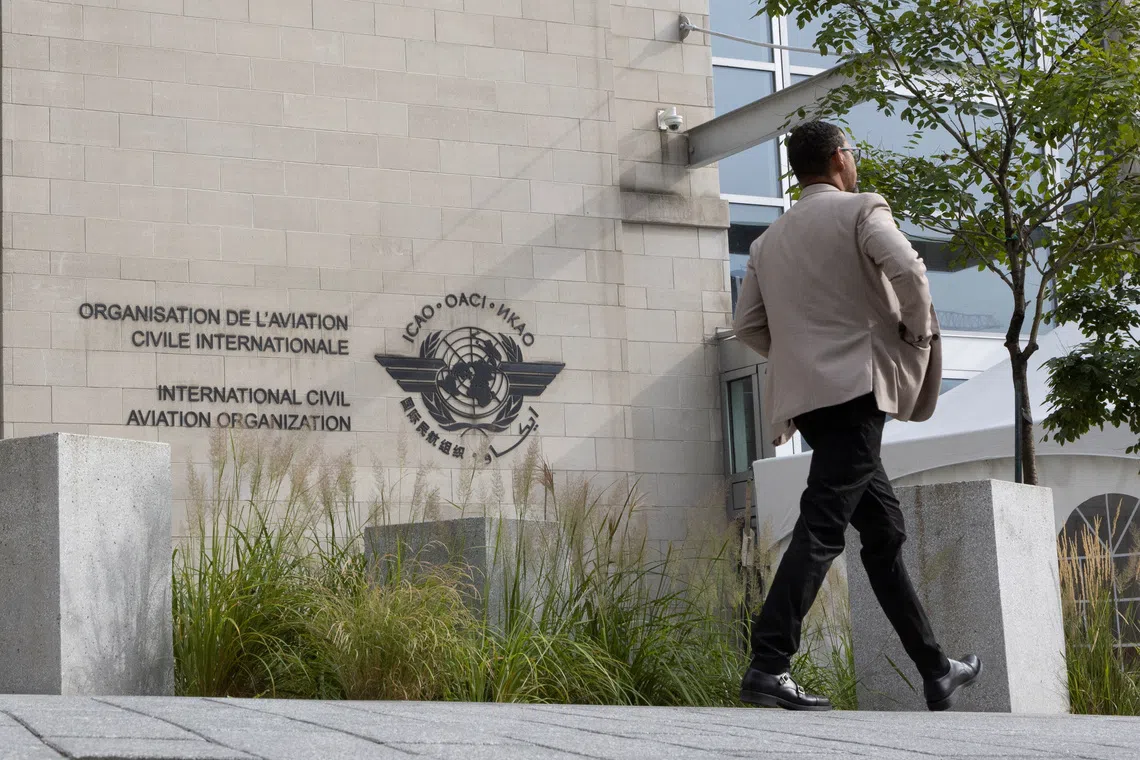Russia fails to win back UN aviation council seat in rebuke over signal disturbances
Sign up now: Get ST's newsletters delivered to your inbox

Russia faces condemnation from the International Civil Aviation Organisation's governing council for disturbing signals used in navigation.
FILE PHOTO: REUTERS
MONTREAL – Russia failed to win enough support on Saturday to get elected to the United Nations aviation agency’s governing council, in the latest rebuke of Moscow for actions taken after its 2022 invasion of Ukraine.
Russia received 87 votes, short of the 93 votes it needed to win back a seat on the International Civil Aviation Organisation’s (ICAO’s) 36-nation governing council during the agency’s assembly, which runs through Oct 3 in Montreal.
Russia in 2022 lost its spot on the first part of the council, which includes countries like China, Brazil, the United States and Australia as “states of chief importance in air transport,” following its invasion of Ukraine.
A Russian representative immediately called for “a repeat round of voting,” which was not accepted by the assembly.
A spokesperson for Russia’s transport ministry was not immediately available for comment.
The ICAO sets global safety standards for civil aviation with the governing council playing a critical role in that process.
In addition to the war in Ukraine, Russia faces council condemnation for disturbing signals used in navigation,
“They are the most aggressive abuser and violator of international agreements and international norms,” US Transportation Secretary Sean Duffy told Reuters by phone earlier this week about Russia.
“How could we let someone come into a world organization that is truly making the airspace more dangerous, not more safe?” REUTERS


